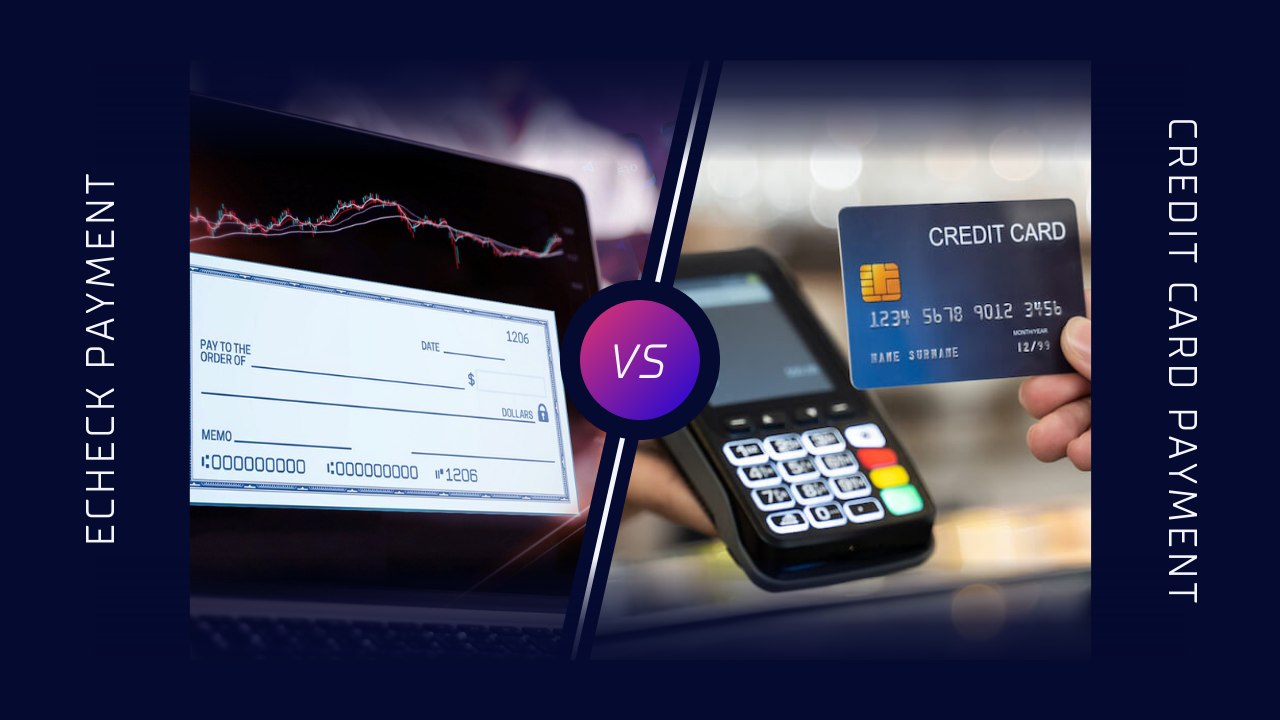
| May 12th, 2023 |
Comparing Echecks To Credit Card Payments – Which Is Better For Your Business?
Echecks and credit card payments are two of the most popular methods businesses have access to in today’s digital age. Along with their benefits, they have certain differences that make either of the options better for your business.
What is eChecks?
Processed electronically, eChecks are the digital version of the traditional paper check. When it comes to completing transactions, eChecks use the Automated clearing house. It is also used for direct deposits and other electronic fund transfers.
What are credit card payments?
It is one of the most popular and easy payment methods used by customers to purchase goods or services. The payment is processed through a payment gateway by the merchant, which allows the transaction and transfer of funds to the merchant’s bank account. Visa, MasterCard, and American Express are some of the ways credit card payments are processed.
Comparing eChecks to credit card payments —
With a basic understanding of eChecks and credit card payments, which one is better for your business?
- Transaction Fees:
The transaction fees are one of the most important differences between eChecks and credit card payments. eChecks have lower transaction fees as compared to credit card payments. Credit card payments may have a flat fee and a percentage fee, which can range from 1.5% to 3% per transaction. On the other hand, eChecks may have a flat fee ranging from $0.25 to $1.50 per transaction, depending on the payment processor.
- Processing time:
As compared to eChecks, credit card payments are processed faster. Echecks take a few days to clear as compared to credit card payments which take seconds. Echecks have to go through the ACH network, which takes time to process and clear.
- Fraud Task:
There is a certain amount of fraud risk for both eChecks and credit card payments. With the ease of chargebacks, credit card payments are more susceptible to fraud. The customer disputes a transaction with the credit card company when chargebacks occur, which in turn can lead to the merchant losing the payment and incurring a chargeback fee.
Chargebacks are less common with eChecks, but there are chances of fraud in case the customer’s bank account is compromised.
- Customer convenience:
Customers find it a lot more convenient to pay their Credit card payments as they need not have their bank account information on hand. The payment will be processed once the credit or debit card information is punched in.
eChecks, on the other hand, need customers to have their bank account information available and will have to go through an extra step to process the payment.
Which payment method is better for your business?
Choosing between eChecks and credit card payments ultimately comes down to your business’s specific needs. If your business processes large transactions, eChecks may be a better option due to lower transaction fees. However, if your business relies on quick payment processing times, credit card payments may be the better choice. Additionally, if your business experiences a high volume of chargebacks, you may want to consider using eChecks to mitigate fraud risk.
Conclusion —
In conclusion, both eChecks and credit card payments have their pros and cons. It’s important to weigh these factors and consider your business’s unique needs when deciding which payment method is best. Whatever payment method you choose, make sure to use a reputable payment processor that provides secure and reliable payment processing services.